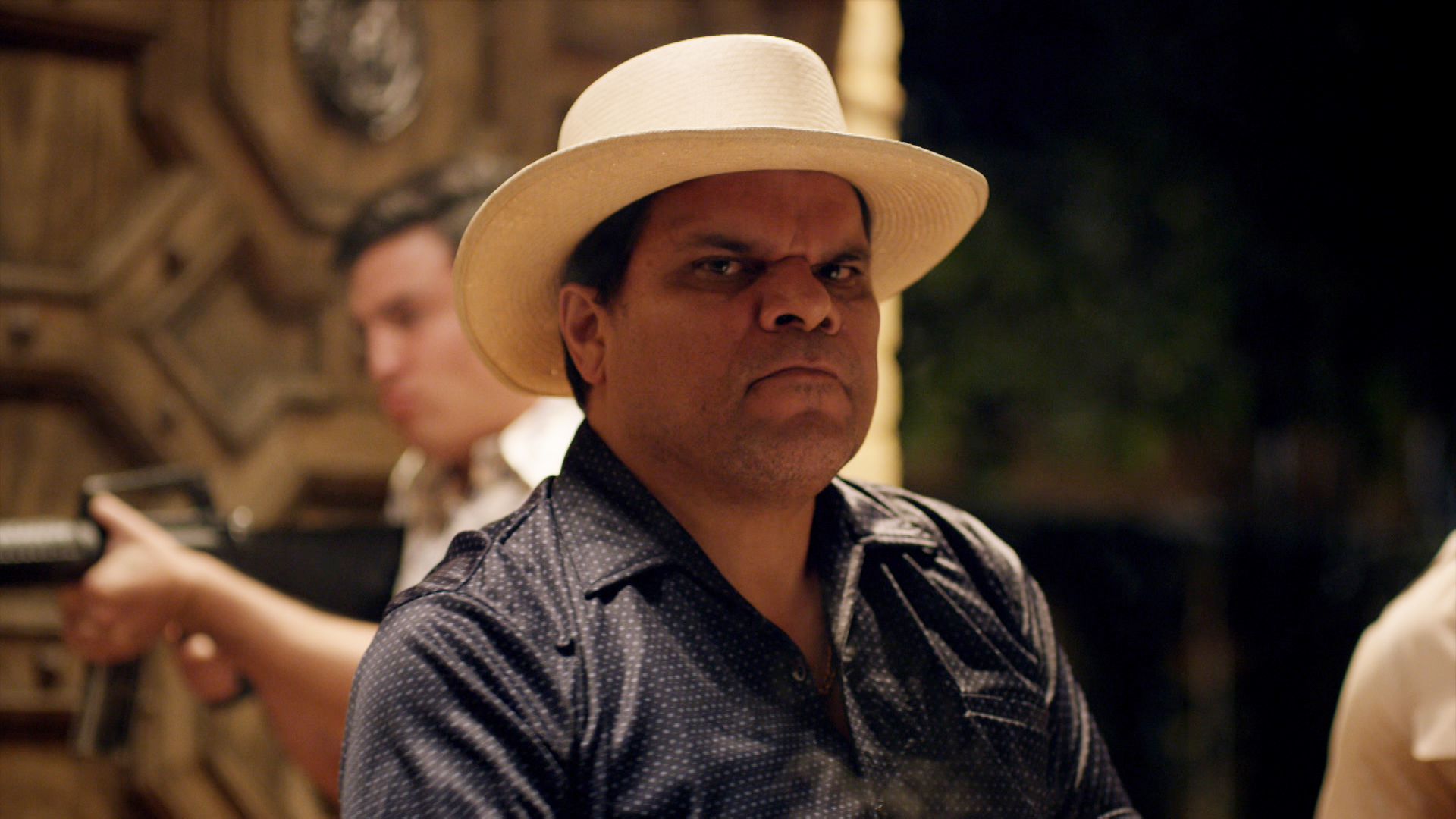This article is about a frustrating recurring technique I’ve noticed in some of the movies and TV shows I’ve watched recently. There isn’t exactly a good word for a pattern that occurs across multiple works but isn’t as popular or noticeable as a cliche– motif seems semi-fitting but conveys more intentionality from the creators than I think they deserve, so I’ll call it a recurrent convenience.
The first time I noticed this convenience was in Narcos, a show that chronicles the rise of Pablo Escobar and his Columbian drug cartel. (I should warn you that there are spoilers ahead even though they aren’t particularly important to the plot.)
One of the episodes culminates in a dramatic chase sequence. A drug lord with ties to Escobar flees his lavish, drug-funded mansion with his son, pursued by Colombian drug enforcement officers in helicopters. As the officers close in, the drug lord opens fire, sparking a deadly shootout, ultimately killing both the drug lord and his son. But what annoys me about this episode isn’t something that happens in this scene; it’s something that happens leading up to it.
This is the first episode where we’re introduced to the son of this drug lord, who makes unwanted advances toward a maid in his first appearance. The episode occasionally cuts from the A-story back to the son making some sort of sexually suggestive remark to the maid, threatening to assault her, or being generally misogynistic every time. This character essentially exists solely to be hated so that his eventual death is justified. This writing is lazy and falsely alleviates the guilt or sadness that should be associated with a situation like this.
It’s easy to make the person that has to be killed a bad guy to avoid confronting the implications of killing someone who's not, but that doesn’t actually solve the issue, it just hides it. What about the scenarios similar to this one that don’t happen on screen, where the kid of a drug lord is just a kid? How should we feel about the protagonists who killed the son, despite not knowing anything about him?
I can imagine one of the writers trying to figure out how to explore the nuances of this situation and eventually deciding: this is too hard; let’s just make this kid a rapist. It’s lazy and underestimates the audience. We don’t have to be spoon fed what to think and feel; we should be able to come to those conclusions on our own, to interpret and understand the show in our own way. This technique manipulates the audience into feeling justified about the death of a teenager without having to deal with messy nuances or confront facts that sully the protagonist’s reputation.
Prioritizing narrative efficiency over emotional honesty is especially undermining for Narcos because of its biographical nature. The show is supposed to introduce us to the workings of a Cartel, not tell us exactly what to think about it and push its own subjective interpretations. By stripping away the moral ambiguity and gray areas of real life, it loses its credibility in telling a story grounded in truth.
This convenience appeared again in the 3rd Guardians of the Galaxy movie (again, spoilers ahead), which culminates in the gang of hero protagonists having to retrieve data that exists in a chip attached to someone’s brain: essentially a death sentence for that person.
In this case it's fair to say that the person they have to kill is morally questionable, and that there is some justification to be made for doing so, as his death is a direct result of working for the antagonist, who in typical Marvel fashion, is trying to accomplish something harmful with intentions that are arguably good.
The problem is that, while none of the antagonist’s other workers seem particularly evil (besides their abstract ideology), the one that must be killed is depicted as someone who abuses animals. Again, to make the scenario easier to digest, the writers decide to make a person who the protagonists must harm artificially unlikable. This example highlights another problem with this technique: it just isn’t believable. How likely is it that the only person the protagonists need to kill is also the one who appears to be overtly evil?
In most cases of this pattern, the showrunners distract us from a development that could change our perception of the protagonists by making an unrelated superficial change to a character that is harmed as a result of the protagonist's actions, warping our senses of justice and compromising the believability of the work.
Ultimately, this recurrent convenience in storytelling not only undermines the complexity of the narrative but also disrespects the audience's intelligence. By repeatedly employing such oversimplified characterizations to resolve complex situations, filmmakers and writers rob viewers of the opportunity to grapple with the moral ambiguities that make stories rich and thought-provoking. These tactics might provide temporary clarity and comfort, but they also perpetuate a culture of storytelling that avoids the challenging yet crucial topics of morality, choice, and consequence. As audiences, we deserve and are capable of engaging with narratives that reflect the true complexity of life and human nature, rather than being presented with simplified caricatures designed for easy consumption. This pattern reflects a broader issue in media, where the complexity of real-life moral issues is often reduced to easily consumable narratives, diluting their meaning and giving us less room to form our own opinions. By recognizing and critiquing this technique, perhaps we can encourage creators to embrace more nuanced and honest storytelling techniques that reflect the complexity of the human condition.
